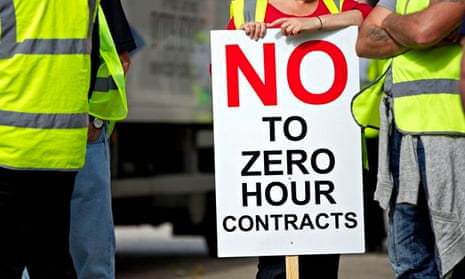New estimates show that the number of people employed on zero-hours contracts reached 697,000 in the fourth quarter of 2014, up from 586,000 during the same period a year earlier.
The figures, published by the Office for National Statistics (ONS), are an estimate of people who are employed on zero hours contracts in their main employment, and come from the Labour Force Survey. By the end of 2014, the total number of people employed on zero hours contracts represented 2.3% of total in employment - up on the previous year when the figure stood at 1.9%. In its release, the ONS note that it is “not possible to say how much of this increase is due to greater recognition of the term ‘zero-hours contracts’ rather than new contracts.”
Here is how the numbers break down in charts:
By age:
This article includes content hosted on d26adhsj11a4c2.cloudfront.net. We ask for your permission before anything is loaded, as the provider may be using cookies and other technologies. To view this content, click 'Allow and continue'.
By gender:
Women make up a bigger proportion of those that reporting working on zero-hours contracts (55%) compared with other people in employment (47%).
This article includes content hosted on d26adhsj11a4c2.cloudfront.net. We ask for your permission before anything is loaded, as the provider may be using cookies and other technologies. To view this content, click 'Allow and continue'.
By educational status:
This article includes content hosted on d26adhsj11a4c2.cloudfront.net. We ask for your permission before anything is loaded, as the provider may be using cookies and other technologies. To view this content, click 'Allow and continue'.
By length of time in job:
This article includes content hosted on d26adhsj11a4c2.cloudfront.net. We ask for your permission before anything is loaded, as the provider may be using cookies and other technologies. To view this content, click 'Allow and continue'.
An estimate published in the second ONS survey of businesses, put the number of contracts that do not guarantee a minimum number of hours at 1.8m (work was carried out in the fortnight beginning 11 August 2014). The difference between the business survey and LFS, say the ONS: “will partly be accounted for by people who have more than one ‘zero-hours contract’ with different employers or who have a ‘zero-hours contract’ to supplement their main employment.”








Comments (…)
Sign in or create your Guardian account to join the discussion